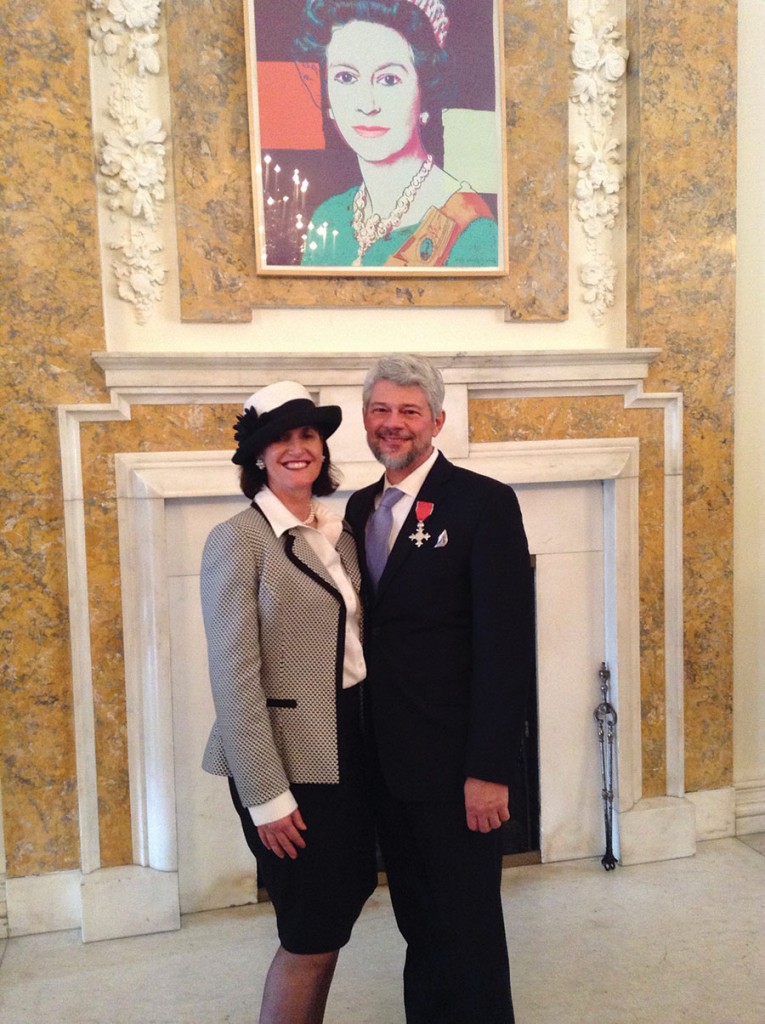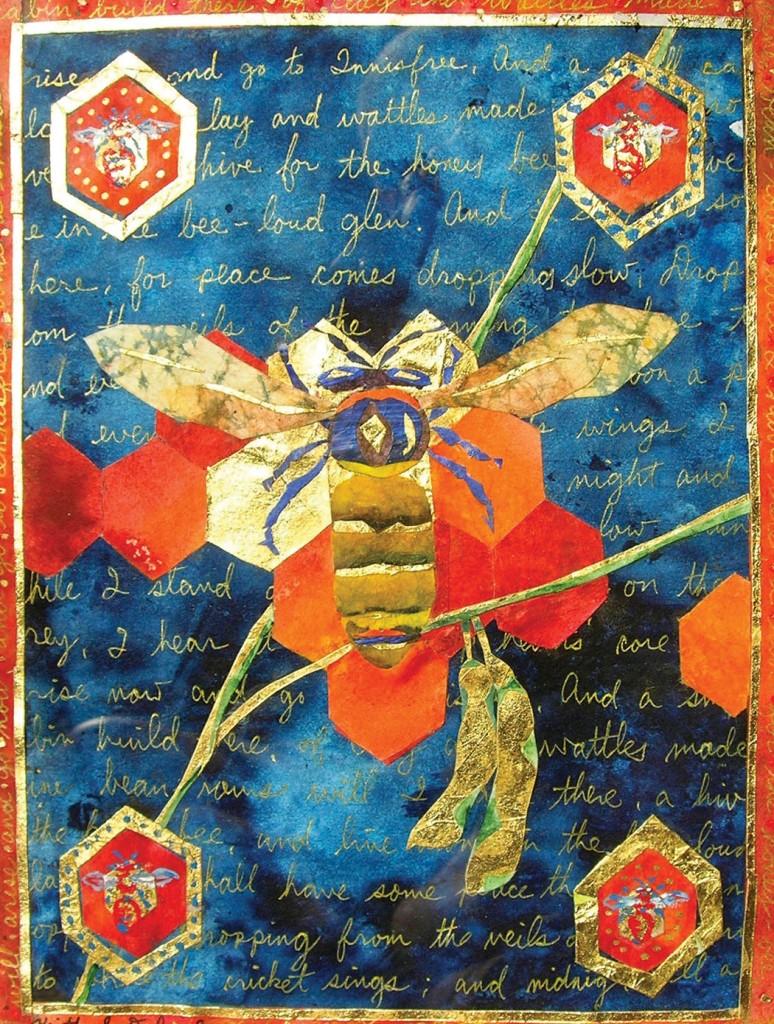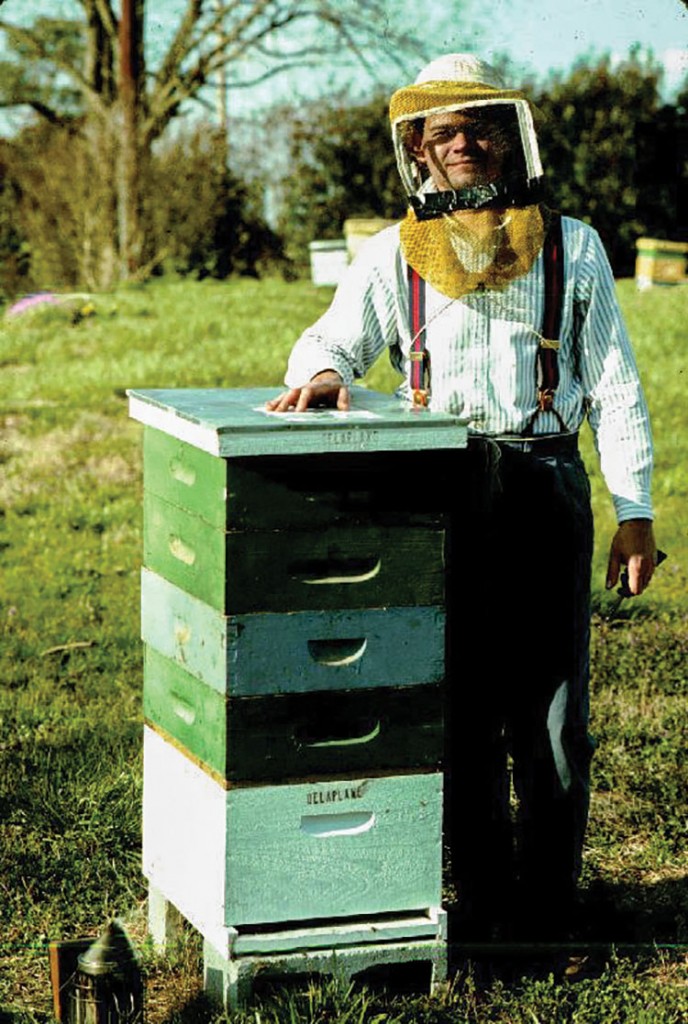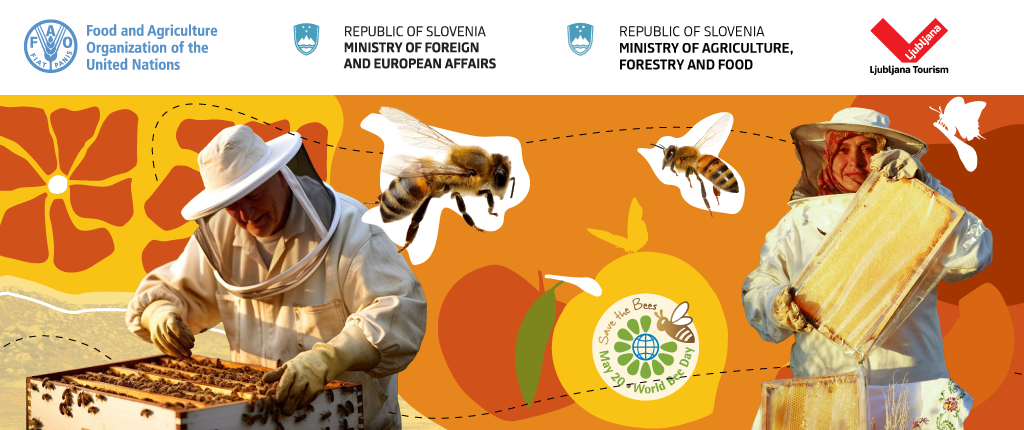by Jennifer Berry
It’s interesting how things work out.
How one minute your life is heading down a certain path, then the next it switches directions and everything has completely changed.
It’s also interesting to look back and see how many people during the course of your life were responsible for encouraging change in your life’s journey. And when those folks have helped you find or continue on a path to something you love, whether a hobby, career, or partner, their intervention means so much. Just think, without them, where would you be? Who knows? What I do know is this: there have been numerous people throughout my life that have made my existence so much better, and I wish I could thank them all. Some are no longer with us, and some, especially from my younger years, I wouldn’t even know where to find them. But there is one in particular, whom I can thank now. He’s the subject of this article – my boss, Dr. Keith Delaplane, MBE, Professor, & Walter B. Hill Fellow.
In a different life, many decades ago, I made the decision to go back to school.
As it had turned out, the Hollywood dream was turning into a Hollywood nightmare. I decided to move back to my grandparent’s farm and attend Central Missouri State University (CMSU), a small college 20 minutes from where they lived. This time around, the sciences were going to be my focus, so I loaded up on botany, chemistry, biology and the works. My favorite course while attending CMSU was an Entomology course. I never realized in my earlier college years that you could actually study bugs. How cool is that! While growing up, I would scare my mother to death carrying in this beetle or that spider, lightening bugs or caterpillars. After the semester ended, several of my professors recommended that I look into graduate school at the University of Georgia (UGA) since it had an excellent Entomology program. Looking back, I’m so happy they steered me in that direction, because my life was about to change forever.

Induction into Most Excellent Order of the British Empire at British Embassy, Washington DC, Feb. 2014.
After researching about UGA and the Athens area, I decided to give it a go, so off to the Deep South I ventured. After two semesters, the course that would make the biggest impact on my life was offered, “Bee Biology, Culture and Management,” taught by Dr. Keith Delaplane. At first, I didn’t think much about it. It sounded fun, and interesting. At that time, I only knew a few things about honey bees – the standards learned in basic Entomology courses: honey bees belong to the order Hymenoptera along with ants, wasps and other non-apis bees; they are fuzzy; they make honey; they sting; and they are the main character in several really bad b-movies. I was about to find out that there is a lot more to this story.
Throughout my college career, there were courses I enjoyed, and some I didn’t; some I remember, some I wish to forget; and, of course, some where I just warmed the seat long enough to take the exam. But Dr. Delaplane’s class – I loved it, and it only took a few weeks for me to realize I wanted to be involved with honey bees for a long time. Maybe even the rest of my life.
It was the third time that Dr. Delaplane taught the class. While he was lecturing about the biology of the honey bee, I realized something. You know how some people say “the light bulb came on”? Well, instead of a single light bulb, it was more like the roof of the building was ripped away, the clouds parted, a chorus of angels began singing, and out of the sky surrounded by blinding light came an enormous sledge hammer which knocked me upside the head (kind of like a Monty Python Cartoon).
I knew, at that moment, sitting there in Dr. Delaplane’s class, that bees would be in my life forever.
After class, I approached Dr. Delaplane, nervously asking him if there was a possibility that I could be his graduate student. He said, “Yes, I think that can be arranged.” I was his first graduate student and I guarantee he had no clue what he was in for.
My parents received a phone call that weekend, and listened to their daughter talk on and on about how she had found her life’s calling, and that she was going to study honey bees in grad school. My mom thought to herself, ‘Great, more bugs!’ But this isn’t about my journey, it’s about the person whose own life journey eventually helped mine.
Keith grew up in Cass County, Indiana, on a small farm north of Indianapolis.
The family raised pigs, and cultivated corn and soybeans. There were many chores associated with the farm that Keith was responsible for each day. Even though he understood the inner workings of a farm, his heart wasn’t in it. His ambitions and dreams leaned towards the arts. So after graduation, he left the small, rural environment for the big city and attended Butler University, a fine arts school in the heart of Indianapolis. His major was music and his instrument was his voice. Even though the love for music and theater drew him to the big city, it was the big city that drove him away.

The poem by W.B. Yeats “The Lake Isle of Innisfree”
As Keith describes it, he was 18, young, dumb and clueless (I did not call my boss dumb, these are his words). Growing up in a farming community did not prepare him for city life, which included large crowds, unfamiliar faces, acres of cement, and mind blowing traffic. So, after one semester he took flight back to the familiar: he enrolled at Purdue University in Animal Science, something he took comfort in. Even though he did miss the arts, he knew one day he would eventually find his way back.
After four years, he received his bachelor’s in science, but wasn’t exactly sure what was next. Friends and classmates were taking jobs at Pioneer, and Monsanto, but this didn’t appeal to Keith. Luckily, a friend on faculty there at Purdue, helped reveal a path Keith had never considered—he encouraged Keith to pursue a master’s degree in Entomology with a specialty in honey bees. It was like a brick knocked him upside the head. “Why hadn’t I ever thought of this? I’ve been a beekeeper since the age of 13, and I love bees,” but he had never considered it as a career. Purdue didn’t offer a degree in honey bees at the time, so he filled out and mailed applications to the few schools that did have a program. When LSU accepted him into the program, he said it was a ‘no brainer.’ With maturity under his belt, and a new sense of confidence, LSU was the perfect arena – especially with Dr. John Harbo as his major professor. In Keith’s own words, “it was an intellectual renaissance.” He was uprooted from everything familiar, everything comfortable, when he journeyed from Indiana to Baton Rouge, Louisiana – from the past to the future – and it was perfect.
Keith, received his master’s degree in two years.
Once again, he found himself at a crossroads, which way to turn next. He thrived while at LSU, he loved the challenges that research and course work provided. Therefore, the logical thing for him to do next was pursue his PhD. At that time there was a vacancy in Dr. John LaFage’s lab, but he would have to leave the world of honey bees and work on another social insect – termites. Keith was hired as a lab technician and was given free reign. Dr. LaFage explained, “Run the lab, and crank out as many papers as possible, all of which will be used for your dissertation.” Their research, which is still relevant today, laid the groundwork for certain fundamental understandings about foraging ecology in termites.
Upon graduation there were choices once again to be made. This time it was Dr. John Harbo who was responsible for guidance that would cause yet another course change. He encouraged Keith to apply for a newly opened position at UGA. At the time, the position was 100% extension with the emphasis being beekeeping, education and pesticides.
After five years of hard work, he was tenured and offered the position he desired, with a research and teaching appointment.
He was given a lab, (Dr. Dietz’s old building), and a truck – but no funding. It was hard to lure graduate students or conduct research projects with no money. For years, the only money available came from small donations given by the GA Beekeepers Association and other local clubs. Time after time, grants he submitted were denied. It wasn’t until the early 2000s that Keith was finally successful in landing substantial grants after taking a grant-writing course and learning the ropes. I remember those early days of shoestring budgets and overtime; we would ask beekeepers to collaborate with us so that we could use their bees and equipment for research projects since we had little to none ourselves. Many GA beekeepers stepped up and helped us out in those days: Carl and Virginia Webb, Bob Binnie, Jessie McCurdy, Reg Wilbanks, Fred Rossman, Lloyd Allison, Barry Wright… There have been many others since then that have helped us out in our time of need – we’ve been very lucky to have the support of the beekeepers in our state.
The end of the 20th century proved well for Keith and the UGA bee lab.
Money released by the Georgia Department of Agriculture allowed Keith to hire a full time technician (that’s me!) and build a new lab. The “old lab,” as we so named it, was not only old, but limited in space. Keith wanted a facility that could house offices, conference space, and classroom space. Since then, there have been more grants awarded, more students graduated, and more research projects completed. A whole new era at the lab began, and the goal shifted to being locally responsive to the needs of the bees and beekeepers—but at the same time being globally relevant.
Another goal Keith set out to achieve was making the Young Harris Bee Institute the flagship of our extension efforts.
Not only does the institute expose beekeepers (or soon to be beekeepers) to an excellent array of instructors with a vast amount of good, solid information, it also offers the Master Beekeeping Program. By equipping beekeepers across the state, region and country with knowledge of how to best keep bees healthy and alive, our efforts have had a multiplication effect. Instead of just the two of us trying to teach folks and evaluate situations, now there are 100s of highly educated and certified beekeepers out there helping others. The efforts of these beekeeping ambassadors have an overreaching impact in our state and region, which is why Keith has strived for the bee institute to be the best of its kind – not only rigorous and science based, but also fun for the body, mind and soul.

A young Keith Delaplane
To date, Keith has written over 75 research, extension and educational publications, authored three books, and has been an editor for several others – including the 42nd edition of ABC & XYZ of Bee Culture, which should be hitting bookstores soon. In addition, he has presented hundreds of lectures to local, state, national and international political, academic, scientific and beekeeping audiences. Because of this, several years ago Keith was awarded the Walter B. Hill Fellow award, which is UGA’s highest and most notable award given for achievements in public service and outreach.
The Hill Fellow is not the only distinguished award he has received over the years.
In 2014, Keith became a Member of the British Empire (MBE). While on Sabbatical at the National Bee Unit, in York, England (2012-2013), Michael Young MBE and the Institute of Northern Ireland Beekeepers nominated Keith for the award. He had no clue until one day, out of the blue an oversized envelope was delivered from the Foreign Affairs Office. Inside was a formal document describing the award, his nomination, and how it would not be official until Her Majesty Queen Elizabeth II herself, approved this honor. He was sworn to absolute secrecy. Keith had to hold his tongue until he returned back to the states. The induction ceremony was held February 11, 2014 at the British Embassy, in Washington DC. It was a spectacular and elegant event, as only the British can make it. The British Ambassador, Sir Peter Westmacott presented the award on behalf of Her Majesty Queen Elizabeth II. As quoted from an article written by J. Merritt Melancon, from the University of Georgia News, Keith said, “This is an honor I never saw coming. I am grateful to Great Britain and her people for the many rich experiences they have given me, both professionally and personally. I hope this recognition signals many more years of collaboration between bee scientists across the pond.”
When asked about his sabbatical, he claims it was a life changer. For years Keith has been a frequent visitor to England but for short stays. The sabbatical lasted six months and gave him time to really immerse himself in the life and culture of England, which he truly adores. It also gave him the time to deepen and increase relationships with researchers, such as Dr. Giles Budge at the National Bee Unit. The research project they collaborated on should be accepted soon in Nature magazine. It is the first research to show, on a national scale, the impacts that imidacloprid has on colony mortality.
Keith has been at UGA for 25 years now.
As noted, there have been many successes in his professional life, but there have also been a great deal in his personal life as well. Probably one of his proudest is being a father. I’ve watched Keith these past 18 years with his daughter, Eva. There have been many joyous moments, but it’s also been hard on him, as it is with most fathers I imagine. They watch their little girl grow into a woman. Guess it’s that way with all parents, mothers and fathers –they want time to cease moving forward so that sweet, precious, innocent child remains just that. Eva is no longer a child. She is 18 and will graduate as the Valedictorian of her school this Spring. Not only is she smart, like her father, but she is extremely talented. Her favorite activities are dance (Ballet: en Point), trapeze and climbing.
Keith is also an artist.
Over the years, he has sang with numerous church and ensemble choir groups, and has acted in several musicals conducted by theatrical companies in Athens. He’s also a painter. Several of his pieces have been used as cover art for IBRA publications, Bee World Magazine, American Bee Journal, and book covers such as First Lessons in Beekeeping and Mites of the Honey Bee.
Most recently, Keith married Pilar Pagés Delaplane. Pilar is a paralegal in Athens, working for lawyers who are extremely generous and empathetic to people with disabilities. This past year, she completed her master’s degree in Pastoral Studies from Loyola University in New Orleans. She is an avid reader, consuming books daily. Since meeting Pilar, Keith is a different man. A happy man. This is good to witness, and much deserved.
As I wrapped up the interview, I asked Dr. Delaplane, where do you see yourself going? He pondered this for a moment, then said, “Nowhere for the time being. I really enjoy my job and my life here in Athens. But I do want to continue to make the Young Harris Institute Master Bee Program the best of its kind. I want to improve the curriculum, make it more straightforward, improve on the pass rate – yet not dumb anything down. I want to be involved in research that is long lasting and has a permanent value to science while delivering helpful information to our clientele. They will probably have to kick me out of here, since I am having so much fun.”
There are 100s – no, 1000s – of people who come into our lives. Some duck in and out, some stick around for the duration. Out of the many, there are those who are instrumental in shifting our path, and influencing our future. Dr. Delaplane is one of those people for me. His influence helped change my journey, from what could have been just ordinary to something extraordinary. Thank you!
So, how many lives have you affected?
Take care of you and your bees!








